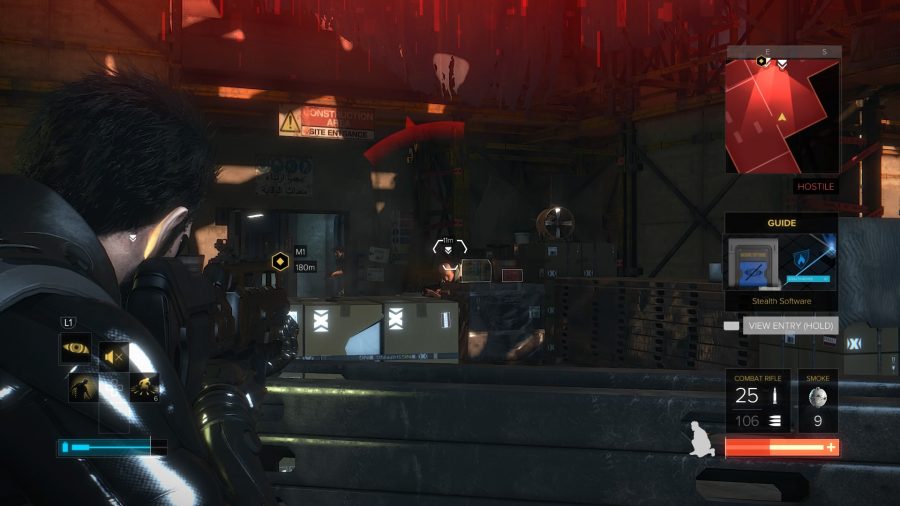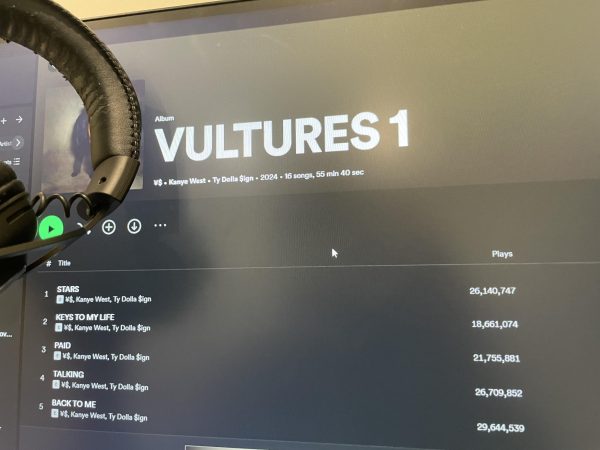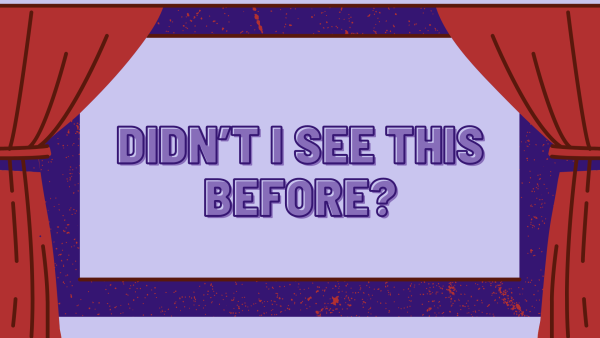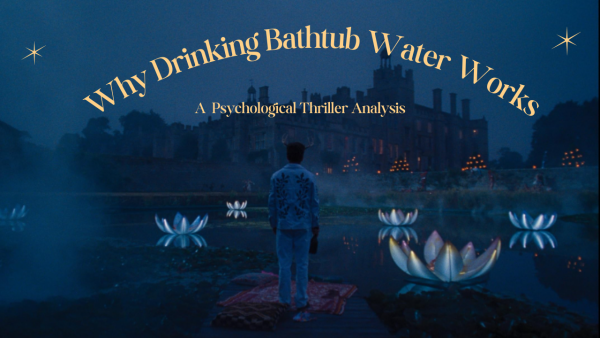A Hunter Allan game review: Deus Ex: Mankind Divided. Is it worth its $60 asking price?
Deus Ex: Mankind Divided™_20161006175601
October 18, 2016
In 2011, Eidos Montreal released Deus Ex: Human Revolution, a fantastic next-gen game which blended smooth stealth action elements with a rich and expansive story. Being a reboot of an already successful franchise, Human Revolution had a lot to prove when it was announced and amazingly it lived up to its expectations. The game received several nominations for Game of the Year and is perhaps the greatest cyberpunk game to be made to date (which is no exaggeration). With so much success, there was bound to be a sequel, which on August 23, 2016, came in the shape of Deus Ex: Mankind Divided. The much anticipated installment to the franchise promised to further polish gameplay while also delving deeper into the vast conspiracies that were hinted at in Human Revolution. However, with so many mixed feelings regarding the title, did the new sequel really live up to its hype?
In some aspects it did. Eidos Montreal certainly delivered on their intentions of refined gameplay, adding in new cyber power-ups and abilities along with more weapons and smarter AI. The whole experience felt immersive and a joy to play. Whether I was sneaking through a hostile police station, or in a firefight with criminal thugs, every level was a unique and rewarding challenge. Even simply strolling through the streets of dystopian Prague was impressive. Without spoiling Human Revolution, at the end of the game, the world’s opinion is split. After a horrible terrorist attack ravages the planet, tensions rise and many people grow suddenly afraid of the cyborg population, eventually forcing their augmented neighbors into ghettos and treating them as outcasts. Nowhere is this better exemplified than Mankind Divided’s depiction of the Czech Republic, where augmented individuals are under constant scrutiny from law enforcement and must always have proper identification papers with them at all times.
The player character, Adam Jensen, being augmented himself must also under these searches and segregation, making the player feel a sense of alienation just by walking through the bleak Eastern European city. It was a beautifully uncomfortable atmosphere to spend the game in. Mankind Divided even goes through the trouble of making two different subway trains for you to travel on. Most of the time you are restricted to the Aug only subway, which is grimy, dank, and covered in graffiti. At first, I only thought futuristic Prague has abysmal public sanitation, but when I got the second loading screen on the Naturals only subway my impression changed. The setting here was much different, cleaner, well lit. The passengers wore cleaner clothes and seemed to sit up a little straighter. And of course, being on the wrong train, many of the passengers were shooting Adam his fair share of nervous looks. I was completely caught off guard when I discovered the two different loading screens, and while I realize it’s a minor detail, it helped to make me feel I was really in a segregated city. The police even stop you when you ride the wrong train and demand ID, some even threaten to arrest you.
While some may consider it a downgrade form Human Revolution to have only one hub city, I disagree. The settings in Human Revolution were pretty much the same though with different textures and NPC accents. They looked different, sure, but there wasn’t much to really make them feel different. Mankind Divided’s take on Prague is almost a character in of itself with all the rich details and emotion it provides. There may be only one hub now, but thankfully that hub is richer and deeper than any I’ve seen before.
However, no one plays a video game solely to walk around the fictional world, they play it for the gameplay and this is where Deus Ex: Mankind Divided really shines. Eidos Montreal listened to criticism about Human Revolution being too focused on stealth and sought to remedy that the second time around. Adding in new augmentations such as the intimidating Titan Shield, which makes you into a walking tank able to soak up bullets and grenades with ease, or the projectile Nano Blades, which can pin enemies to the wall, Adam has become a far deadlier force to be reckoned with on the battlefield, making a full combat play through just as fun as a stealth one.
To be honest, I still played a sneaky approach for my first time through the game. However, the moments I spent fighting were arguably my favorite parts of the experience. Combat feels tense and dangerous now with enemy AI being leveled up for the new installment. They are more accurate, have better armor, and make free use of grenades and gadgets to flush you out of cover. For many combat sections, it felt that my only chance to survive was to use every weapon at Adam’s disposal, and even then it was close.
Though the innovations didn’t end with the combat alone. The stealth aspects of the game also got its number of improvements. New and interesting augmentations help Adam to truly feel like the ultimate cyborg operative which no security system can withstand. Gone are the days in which players had to search for a security room to hack into cameras and drones. One of the most useful toys given to the player is a new remote hacking augment, which allows you to switch off sentry droids and cameras without having to leave the safety of cover. That coupled with a cloaking system and the ability to see enemies through walls made stealth feel better and more refined than it’s ever been before.
However, even with these new additions and tweaks to gameplay, Mankind Divided is not an easy game by any means. I played it through on the normal difficulty and still managed to die a bunch of times. Each section is a challenge to complete and not for the undetermined gamer. Even in the early stages of the game, the player is required to think outside the box and be clever when trying to get through an area. And if that wasn’t hard enough, the new difficulty setting unlocked after beating the game gives you only one life. If you die while playing that mode, you have to restart the entire game from the beginning, a stark juxtaposition to the easiest setting, which holds your hand through the narrative. Regardless of player skill, Mankind Divided is an accessible and rewarding challenge to everyone.
Although, no game is perfect and the newest Deus Ex definitely has its flaws. While gameplay has been polished to be better than ever, it feels like much of the story was cut out, offering a very abrupt and sudden ending to an otherwise fantastic plot. What story is there is well written and well voice acted, I’ll grant, but with the apparent success of the previous game it seems that Eidos Montreal is confident that they’ll be given more squeals to follow, thus resulting in a rather shortened story. This really hurts the game in terms of longevity. Being a story driven game, the primary reason players are playing the game is for the narrative and characters. If that is cut too short, it won’t take long for gamers to grow bored and forget about it. Take The Witcher 3 for example, a game with a massive scale and expansive world. On my first play through of that game, it took me around fourteen hours to complete the main story alone, perhaps double that if I count the side quests, and when I was done I played it through a second time. The story was long and gripping, the characters superb. Even though I knew I would be playing through the same scenes again on my second play through, I didn’t care. The quests were numerous enough that after finished them and started again, I still managed to forgot a few. To this day, I still pop in The Witcher 3 from time to time, but I just can’t see myself doing the same with Deus Ex: Mankind Divided. Just not enough is there.
At first, it seems that Mankind Divided is more interested in quality rather quantity, which is a fine design for a game. However, with only around ten side quests in total and a main campaign that suddenly ends right when it starts to get really good, the experience feels almost lacking. By contrast, its predecessor, Human Revolution, felt twice as long with nearly double the number of side quests. Now, don’t get me wrong, I really enjoyed what story was there, but for me the plot is what holds a game together, which is why it’s so heartbreaking to see Eidos Montreal cut is so short. The side quests were deep and layered, the main story an interesting web of conspiracies and mistrust. If just a little bit more was there, I could see this game easily being a contender for my personal Game of the Year.
Still, there are two other game modes for you to play aside from the story. The first is called “Jensen Episodes,” which are a series of short stand-alone plots that further build on the world and characters. In theory, it is not a bad idea to have an episodic portion of the game. Halo did it and for the most part was successful. However, the Jensen Episodes feel more like an insult rather than a worthwhile addition to the game. At the time of me writing this review only one episode has been released and it costs twelve dollars as a DLC add-on. I was annoyed to see bits of the game sectioned off and sold separately, as if it was a micro-transaction for the story. It is a dangerous trend to see that video games are only being released in pieces and that gamers now have to cough up more cash to pay for the rest of it.
The second game mode is called Breach, and is a time based level pack in which players compete online for the highest score. In this mode, you can make your own load outs and pick different augments, but to be honest it’s nothing out of the ordinary. I barely played past the tutorial before I lost interest, but for some it may be good deal of fun.
Now, moving onto the worst part of any game, micro-transactions. Deus Ex: Mankind Divided has them for some reason even though it isn’t a multiplayer game. Never before have I seen a pay-to-win single player game before this. For real world money, you buy experience points and in-game currency, thus eliminating the need to develop playstyle over another. The fact that these are even in the game is baffling to me. Why have boosts for the story, which should be a challenge, and not Breach, the only online portion of the game? It makes no sense to me.
All things considered, Deus Ex: Mankind Divided is a solid game. It has great gameplay, a rich setting, and well written characters. However, with the cuts to story and abrupt ending I still can’t justify the game is worth its asking price of sixty dollars. It just feels too short, and for me, especially since I didn’t enjoy Breach. Sad to say, but there wasn’t much to do after I completed the story.
My final verdict for this game pains me to say, but is only a 7 out of 10, a good game that could have been so much better. If you were on the fence about buying it, wait for the price to drop a bit before picking it up or hold out for a year and buy the complete edition with all the DLC included.




















Patrick Daly • Oct 21, 2016 at 5:31 pm
Real good article Hunter. Much better than the “professional” reviews most so called game “journalists” do.